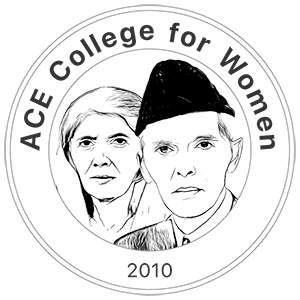Smart City and Waste Management: A Sociological Study in Bhubaneswar, Odisha
| Received 19 Jan, 2024 |
Accepted 12 Nov, 2024 |
Published 01 Jan, 2025 |
Waste is never an issue if it is properly managed to avoid harming both the environment and human health. However, increasing urbanization, rising per capita income, changing lifestyles and new technology have all improved human living while producing greater amounts of waste, which is challenging to manage. A larger amount of waste is gathered from different areas of the cities, which is not managed at a level that is comparable to that amount of its generation. This poor management has shocking effects on the urban environment and contributes to social and health issues in many of the world's cities. Furthermore, excessive usage of non-biodegradable materials, such as plastics, synthetic fibres, pesticides, harmful chemicals, paints and electronic devices, etc., is extremely hazardous to both human civilization and Mother Earth. The primary cause of the issue is poor management and a lack of public concern for this problem. The management of waste is a crucial function that must be handled by both municipal and local bodies. The consequences could be terrible if waste services are not delivered effectively.
The study was done in the smart city of Bhubaneswar, Odisha, emphasizing the above issues as key concerns. The state capital of Odisha, Bhubaneswar just won the top spot in the Smart City Challenge out of 100 cities in India. The main requirement for implementing a smart city effort is having proper waste management technologies that function effectively. According to the cleanliness study performed under Swachh Survekshan 2018, the city has dropped to 245th place from 94th place in 2017 among 4040 cities. Additionally, the city received a ranking of 331 out of 476 cities in the Swachh Bharat rankings carried out by the Ministry of Urban Development in 2014-2015 by the National Sanitation Policy of 2008, where open defecation and SWM (Solid Waste Management) indicators are the primary criteria for consideration. This shows the current state of the city and the implementation of necessary measures to meet the Swachh Bharat Mission, a campaign to improve city cleanliness with a zero-waste strategy.
The researcher has made an effort to cover every aspect to understand the entire waste management system of Bhubaneswar through a sociological lens. On average, Bhubaneswar produces 520 ton of solid waste each day or 500 g of waste per person. The generation of solid trash is predicted to reach 750 ton per day by 2030. In terms of municipal garbage, a sizable portion comes from households, hotels, schools, institutions, weddings, slaughterhouses and electronic sources, with the majority of the waste coming from residential zones. Increased population and rapid urbanization have led to the production of a large amount of waste, which is typically discarded on open dumping grounds. Uncollected waste and foul waste are commonly seen everywhere in the city. Even though people are fully aware of the problems and consequences of improper waste management, which can cause serious health and environmental damage still city dwellers are extremely hesitant to participate in the sustainable waste management processes. Urban local bodies and the state government’s efforts to implement an organized waste management system are failing in urban areas because of the people’s lack of commitment, they fail toprovide adequate services in this crucial area of waste management which leads to the spread of epidemics including chikungunya, dengue fever, malaria, hepatitis and several other unknown life-threatening diseases. The Municipal Solid Waste Management and Handling Rules of 2000 state that each municipality is in charge of managing all tasks related to waste collection, transfer, transportation, treatment and disposal within its respective municipal limits. The success of the MWM (Municipal Waste Management) system, however, depends on the participation and assistance of the general public as well as numerous organizations like residents' associations, self-help groups, NGOs (non-governmental organizations), private agencies and political parties. Therefore, it is extremely important to monitor how well the municipalities in Bhubaneswar are managing the collection, transfer, transportation, treatment and disposal, as well as the degree to which they are receiving cooperation from the general public and other organizations.
How to Cite this paper?
APA-7 Style
Sahoo,
S. (2025). Smart City and Waste Management: A Sociological Study in Bhubaneswar, Odisha. Science Digest, 1(1), 28-31. https://doi.org/10.21124/sd.2025.28.31
ACS Style
Sahoo,
S. Smart City and Waste Management: A Sociological Study in Bhubaneswar, Odisha. Science Digest 2025, 1, 28-31. https://doi.org/10.21124/sd.2025.28.31
AMA Style
Sahoo
S. Smart City and Waste Management: A Sociological Study in Bhubaneswar, Odisha. Science Digest. 2025; 1(1): 28-31. https://doi.org/10.21124/sd.2025.28.31
Chicago/Turabian Style
Sahoo, Suprava.
2025. "Smart City and Waste Management: A Sociological Study in Bhubaneswar, Odisha" Science Digest 1, no. 1: 28-31. https://doi.org/10.21124/sd.2025.28.31

This work is licensed under a Creative Commons Attribution 4.0 International License.




